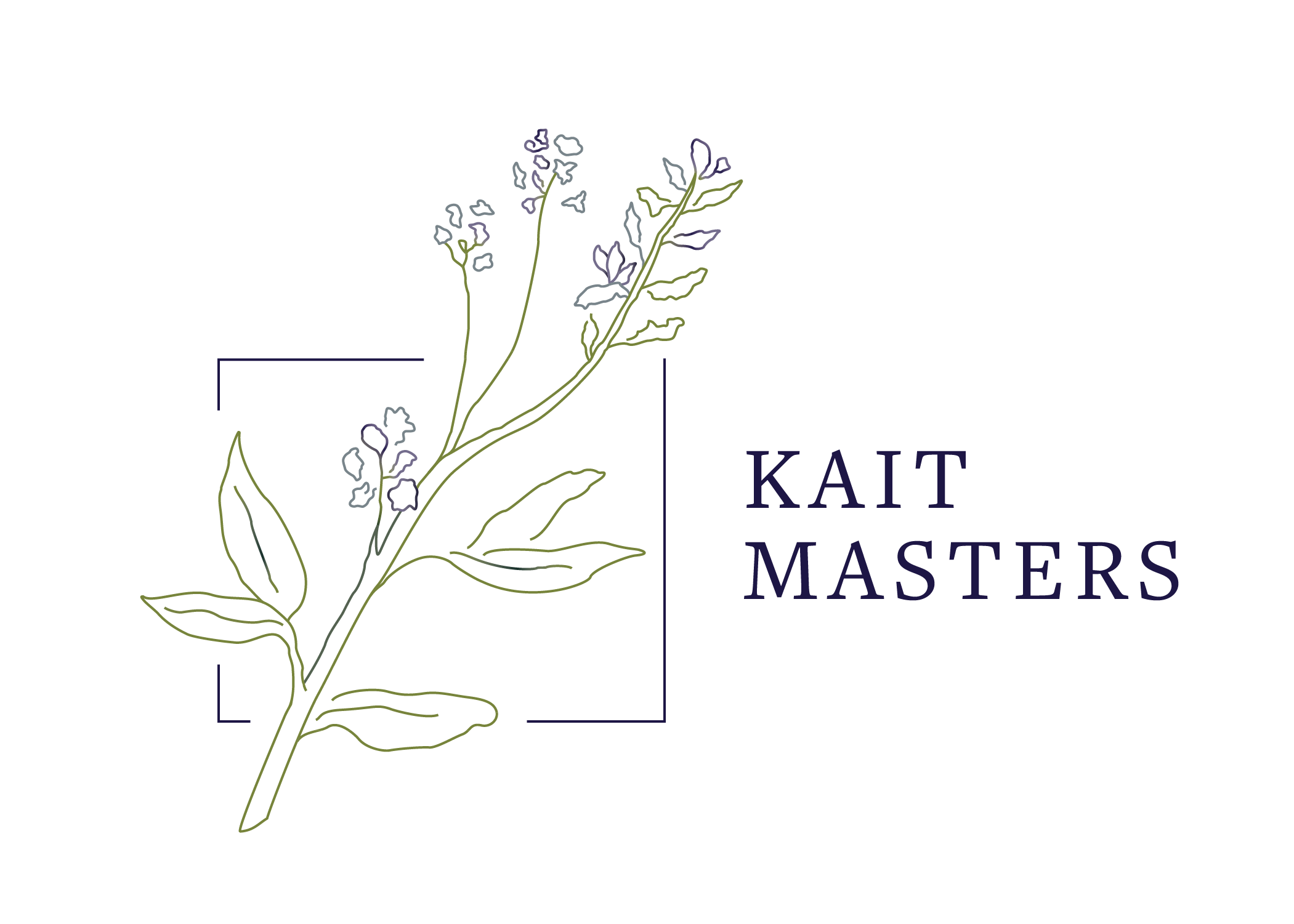Chronic Illness Awareness: Between Stigma and Normal
Those of you who follow me on other social channels (Anchor, Instagram, Facebook) know that I've been working on a special project behind the scenes this summer. I've been asked to be a part of the first ever Imperfect Boss Online Summit! My topic shouldn't come as a surprise - I'll be covering being a creative boss with a chronic illness. When I first started Larkspur + Laurel, it was out of necessity. I needed something to invest in to find purpose and direction after my MG symptoms progressed and became unmanaged. Now more than ever that narrative is becoming vital to who I am as an artist and as an advocate for the chronic illness and disability world.
Talking about the personal with business is still taboo in many ways. Add health into the personal, and it can become isolating and overwhelming. Those of us who are members of this community are often trying to find balance in our visibility and awareness efforts. We are stuck between working against many of the false stigmas surrounding disability that have become ingrained in our community while also working to make sure our efforts for visibility do not dismiss the experiences that are far from "normal". We long for our experiences to be validated without becoming tokenized as "inspiration porn". We share not for pity of to invite a comparison game, but to know that we are heard, valued, and understood.
No, your temporary ailment is not the same as permanent disability, and inviting that comparison leaves many of us feeling frustrated and powerless. That doesn't mean we can't or won't empathize with others who are experiencing temporary health issues. We do because we know how hard it is to have something physically holding us back, and we understand that those temporary setbacks can feel overwhelming. However, it is irresponsible to correlate the two as the same because it perpetuates the notion that the chronically ill and disabled will feel better soon or that their daily pain, fatigue, treatment side effects, and symptoms are less debilitating than they really are. It's complicated to try to navigate these intricacies. It took me a few tries to even type this out because I know that it can be interpreted negatively - that somehow I am just another angry sick woman who thinks she is worse off than she really is... that somehow my symptoms are not real enough to warrant the emotional baggage that comes with this kind of diagnosis.
I'll be the first to admit that I don't always get it right. It takes practice for me to extend the patience and grace to others that they deserve as they navigate conversations and friendships that are new territory for them. There are nuances and implications of being sick that I am still unearthing and unpacking nearly 16 years later. I hope that I can keep putting one foot in front of the other walking a path that may make it easier for other creatives grappling with physical limitations. This is a big step for me, putting myself on a platform completely vulnerable to the opinions of others. Thank you to those of you who have encouraged me to continue to speak up and hone in on the message that I feel is important for others to hear.
